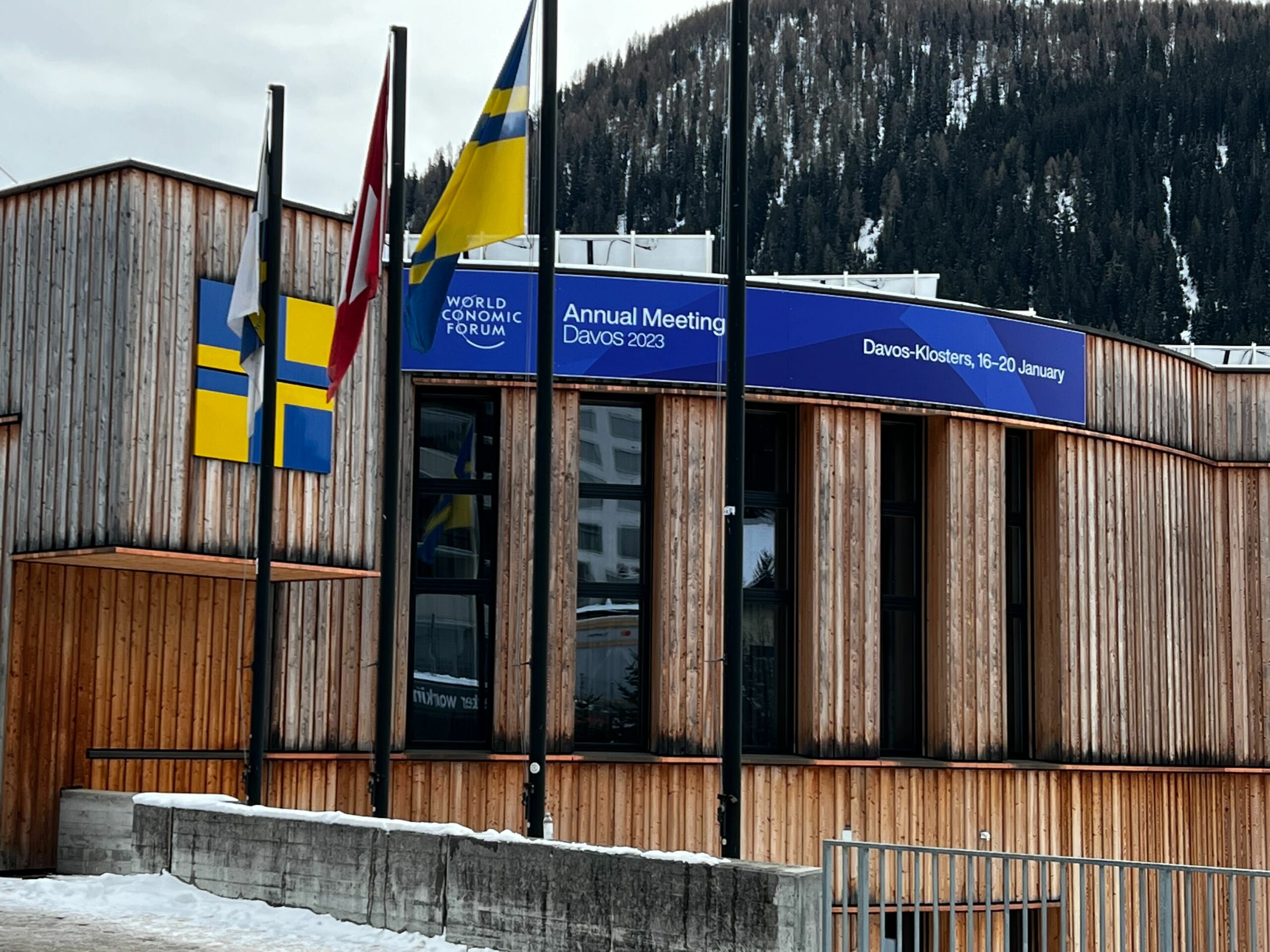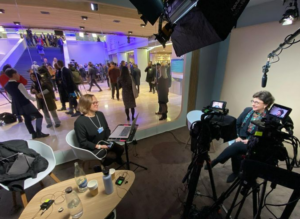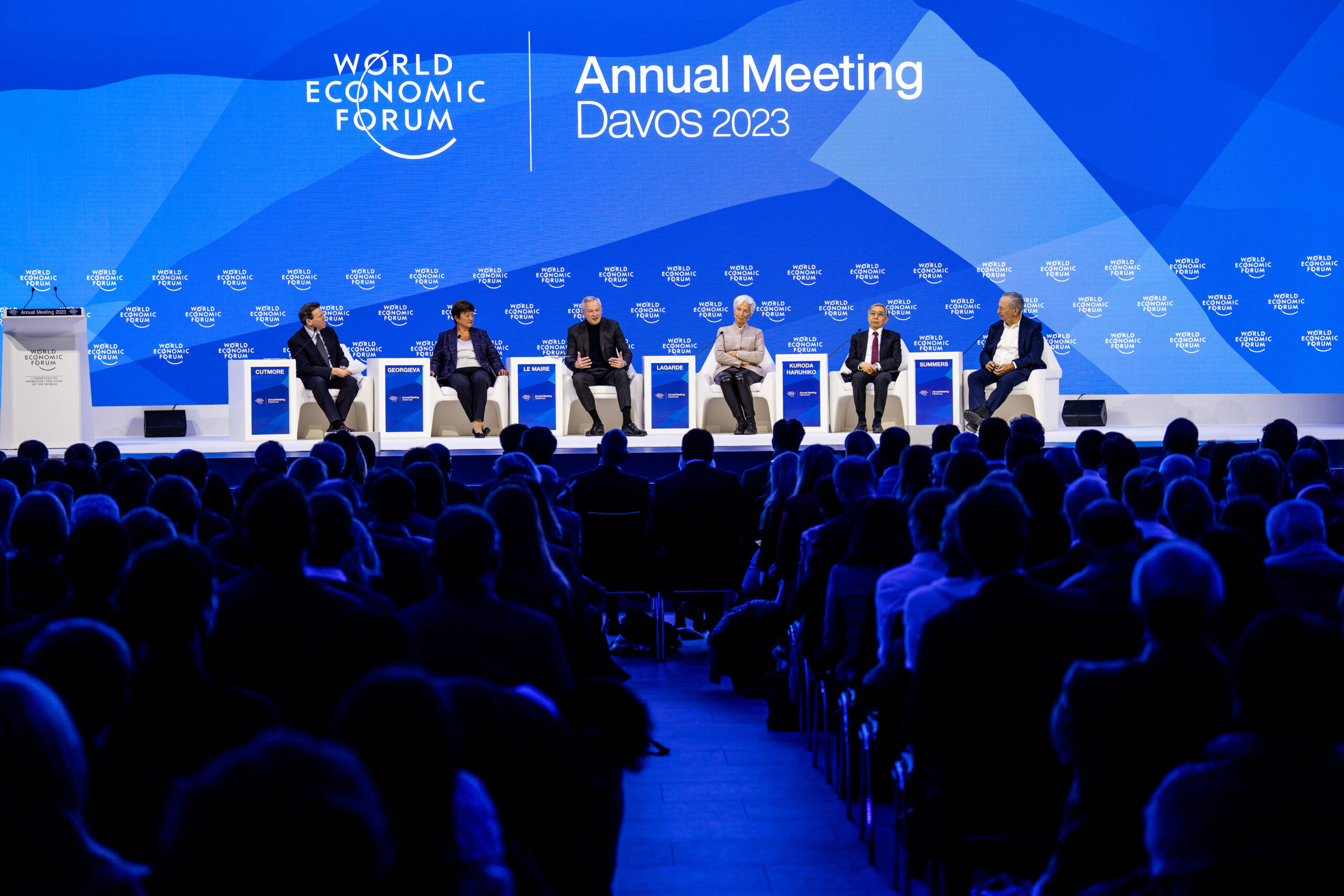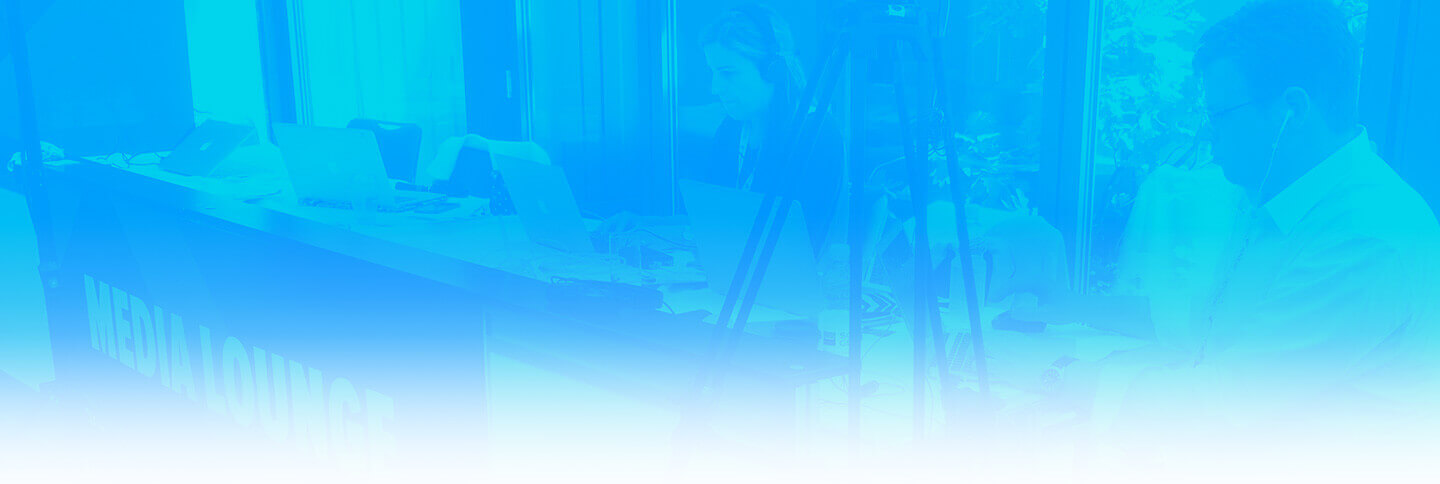Five takeaways from our multimedia live coverage at Davos
Talking freely, openly and in person made for an engaging debate across the week at the World Economic Forum’s annual meeting in Davos. Against a backdrop of multiple challenges including war, economic fragility, the cost of living crisis and geopolitical shifts and fragmentation, the week was characterized by meaty themes.
But the debate also felt optimistic: the sense of being back together in person, of collaborating, of the energy that’s sparked when people are in the room together, was palpable. There was an overall sense of pulling together and that collectively we can make a difference.

The main conference hall in Davos
Here are five of the key takeaways from what was a busy and productive week.
Tentative optimism for the future
The tone among delegates about the future and specifically about the economy was one of cautious optimism, and a sense that – despite multiple challenges – the situation is not as grave as it could have been.
This confidence was underscored by comments from Kristalina Georgieva, the Managing Director of the International Monetary Fund, who said the global outlook was less bad than feared and that a global recession is avoidable.
Geopolitical forces still dominate
Even as that optimism was being expressed, there was also a growing awareness that geopolitical forces, in particular those stemming from Russia’s invasion of Ukraine, have rippled out across the world and will remain for years to come.
“The first years of this decade have heralded a particularly disruptive period in human history,” according to the World Economic Forum’s Global Risks Report 2023.
Food security, apportion of funds, trade routes and global stability are big shifting forces and each one can only be solved by collective, collaborative action.
Trade takes centre stage
Supply chain disruptions and how businesses adapt to the rapidly shifting tectonic plates was a central plank of the discussions. The COVID-19 pandemic highlighted the complexity and interdependency of our trade relationships. And while that prompted some shifting towards reshoring operations, the overarching message was that governments need to avoid protectionist policies and work together to liberalize trade.
Adapting to speed up transitions
Change and adaptation were key themes of the week, with a strong sense that we are in the midst of fundamental changes in so many areas: energy, technology, innovation, work and geopolitics.
Tata Consultancy Services’ Chief Operating Officer, N. Ganapathy Subramaniam, argued that adaptability is the factor that will separate those businesses that are fit for the future from those that aren’t.
“It would be an understatement to say that the pandemic accelerated technology adoption and digitalisation that would have normally taken years if not decades to break through,” he said. “What is more, with the pace of change and the high levels of uncertainty we face, there is a premium on adaptability.”

Gay Flashman interviews Julia Hobsbawm
Technology and a wave of innovation
New and innovative solutions are maturing at a rapid pace and are likely to change many aspects of how we live and work. The spirit of this was captured at Davos, with delegates abuzz about the exciting prospects as well as some of the downsides.
The wide-ranging potential of generative artificial intelligence like ChatGPT, released by OpenAI last year, was a key talking point. There was much optimism about the benefits this type of technology could unlock for healthcare and sustainability, but there were also notes of caution regarding misuse and implications for the future of work.
What’s clear is that these technologies are maturing at a rapid pace and incorporating and drawing on their powers is moving up the corporate agenda.
The meeting closed with a powerful energy and a sense that our ambitions for the year ahead can be backed up with collaborative action.
For Formative, it marked another successful multimedia live coverage operation, where we delighted our clients by collaborating to produce indispensable content that helped shape the global debate and underscored the benefits of connecting in person.
READ MORE:
Getting the most out of live events like Davos
5 ways to harness the news agenda for your B2B advantage
If you would like to know more about live coverage or bespoke corporate content, please email gay@formativecontent.com
About the author: Gay Flashman is the CEO and Founder of Formative Content. Connect with her on LinkedIn here.
Header image provided by the World Economic Forum

Related Articles

Five takeaways from our multimedia live coverage at Davos
Talking freely, openly and in person made for an engaging debate across the week at the World Economic Forum’s annual meeting in Davos.

Davos 2023: What to expect
Leaders from across government, business, civil society and beyond are preparing to gather in the Swiss ski resort of Davos...

Davos 2023: How to follow
The World Economic Forum’s Annual Meeting in Davos returns to its traditional January slot for 2023, having taken place in May...

Getting the most out of live events like Davos
Events are a goldmine for content creation, enabling companies to tell their stories and share key messages in real-time, while also...


